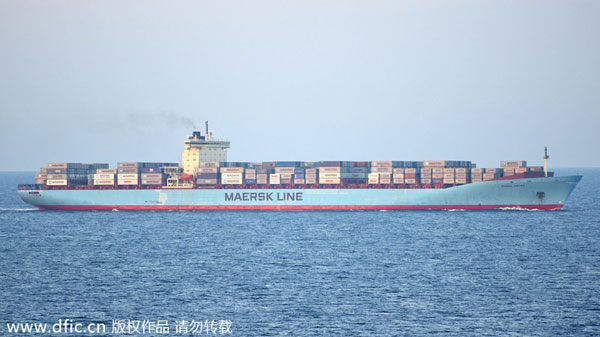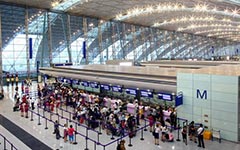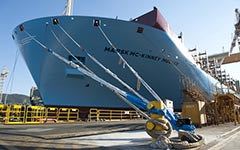|
 |
|
The Maersk Line container ship Maersk Kokura underway in the Tyrrhenian Sea north of the Strait of Messina from the cruise ship Celebrity Equinox on October 30, 2013. [Photo/dfic.cn] |
Maersk Line, the shipping unit of Denmark's Maersk shipping and oil conglomerate, is speeding up plans to offer a wider range of services in China because more Chinese companies are keen to move to emerging markets to benefit from booming bilateral trade, preferential trade tariffs and investment opportunities.
Jens Eskelund, managing director of Maersk China, said China will continue to grow. But the country will also change, and one of the most important changes is the composition of its foreign trade. Growth in trade with mature markets in the United States and European Union is modest, while trade with new markets in Africa and South America is surging.
|
 |
|
 |
In Africa, Maersk Group's logistics arm, Damco, is partnering with a major Chinese petroleum company to expand the African market. Because it needs to send large machinery and equipment from China to plants in Africa, Damco is putting a strong emphasis on timely deliveries and product security with zero damage to the cargo.
More than 30 percent of the African population is landlocked, and statistics show that rural Africa has on average only 34 percent road access compared with 90 percent in the rest of the world, according to a report by the center for African studies at Peking University released last year.
"The African ports that receive international carriers are of a higher standard, but the handling capacity of heavy equipment is relatively limited. Cranes at the ports may not be able to handle lifting more than 50 metric tons. It may take more than a week to arrange transport of a lifter from the eastern region to a port on the western coast," Eskelund said.
The Danish company has built inland container depots to reduce congestion levels at the terminals in certain places and deployed Chinese speaking staff in key destinations in Africa to coordinate with local teams and check all the arrangements before a shipment arrives.
Maersk Line's control desk at the origin can also closely monitor preparations in Africa. Backup arrangements such as trucks and cranes can be arranged in advance to ensure seamless transportation at the destination.
